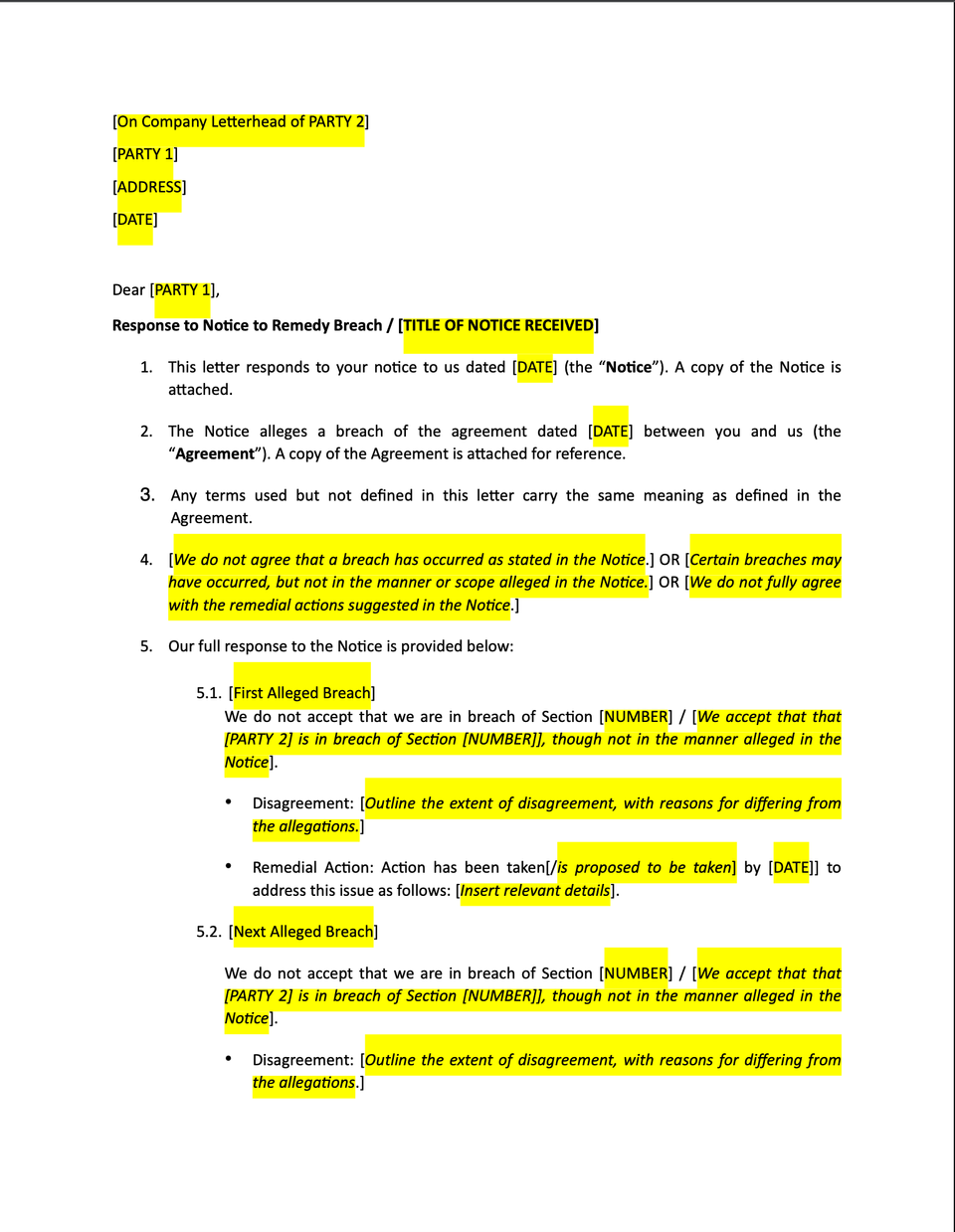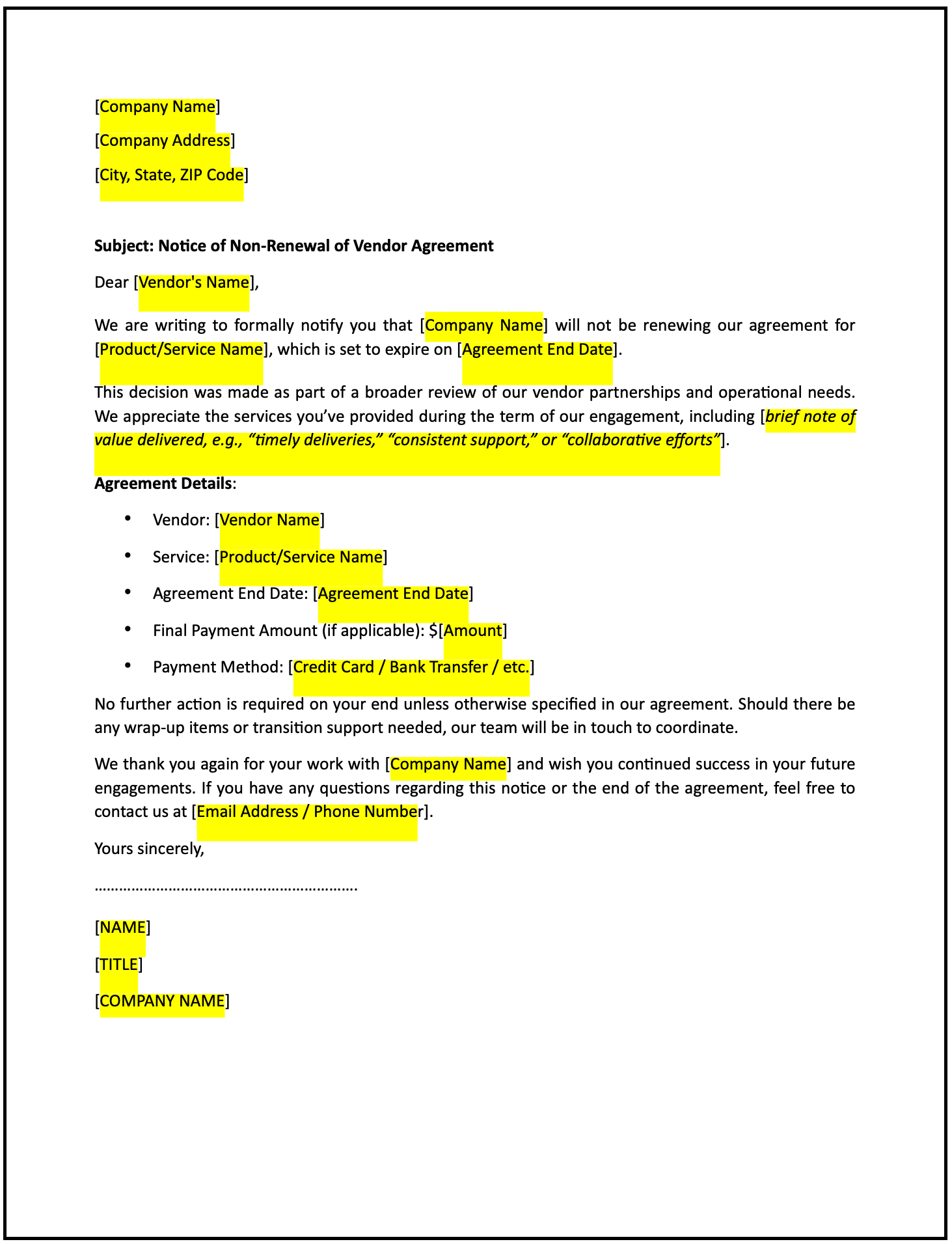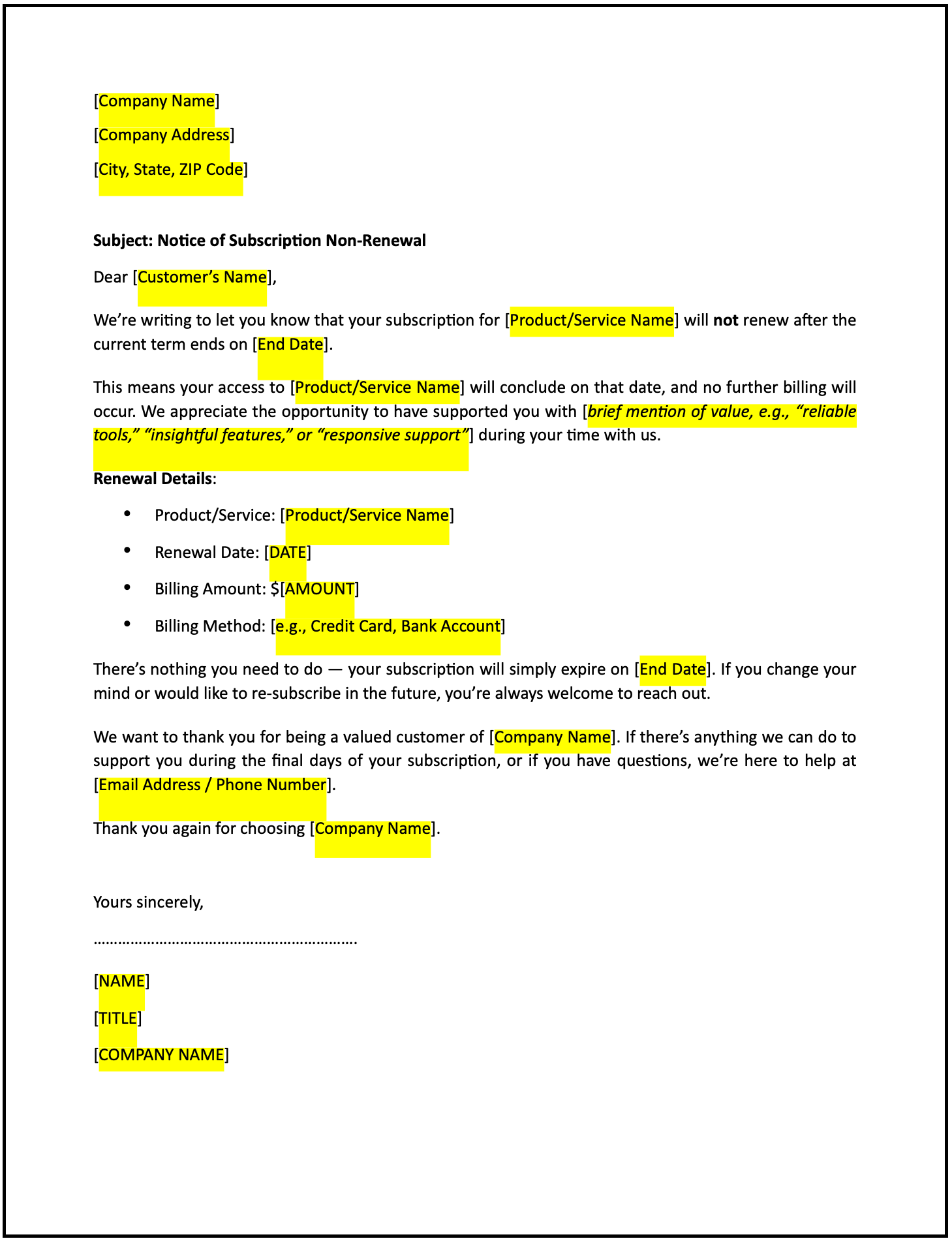Letter of response to notice of alleged contract violation to remedy breach: Free template

Response letter to contract breach notice
A letter of response to contract breach notice is a formal way to address the allegations of a contract breach, assert your position, and outline your steps toward resolution. This letter allows you to either refute or acknowledge the breach and demonstrate a commitment to fulfilling contractual obligations.
How to use this response letter to contract breach notice
- Open with acknowledgment: Begin by referencing the notice of alleged contract violation and the date it was received.
- State your position: Clearly outline whether you acknowledge the breach, partially agree, or dispute the allegations.
- Provide reasoning: If disputing the breach, include an explanation and any evidence supporting your position. If acknowledging, outline the steps you are taking to remedy the issue.
- Reference applicable terms: Cite specific contractual provisions that support your position or clarify the expectations.
- Outline corrective actions (if applicable): Specify the remedies or corrective measures you are implementing to address the breach.
- Maintain a professional tone: Ensure the letter is respectful, clear, and focused on fostering resolution.
- Request further clarification (if needed): If the allegations are unclear, ask for specific details or evidence to substantiate the claims.
- Provide contact information: Include details for follow-up communication or clarification if necessary.
Benefits of using a response letter to contract breach notice
This letter template ensures a structured and professional way to address allegations of breach while fostering resolution and protecting your interests. Here’s how it helps:
- Demonstrates accountability: Acknowledging the notice and responding promptly shows your commitment to addressing the issue.
- Protects your rights: Clearly asserting your position ensures your side is represented in the dispute.
- Encourages dialogue: Providing a thoughtful response fosters constructive communication and resolution.
- Reflects professionalism: A well-crafted letter reinforces your credibility and seriousness.
- Supports documentation: Creating a formal record of your response is valuable for future reference or legal proceedings.
Tips for writing an effective response letter to contract breach notice
- Be specific: Clearly reference the notice, outline your position, and provide supporting evidence or corrective actions.
- Use professional language: Maintain a respectful and factual tone to foster constructive dialogue.
- Reference contractual terms: Cite relevant clauses to clarify obligations or counter allegations.
- Highlight corrective actions (if applicable): Clearly outline the steps being taken to address the breach.
- Keep it concise: Focus on the key points without overwhelming the recipient with unnecessary details.
Frequently asked questions (FAQs)
Q: What details should I include in this letter?
A: Include references to the notice, your position on the allegations, supporting evidence, corrective actions (if applicable), and next steps.
Q: Should I personalize the letter?
A: Yes, addressing the sender directly ensures clarity and demonstrates attentiveness.
Q: Who typically receives this letter?
A: Send the letter to the party issuing the notice of alleged contract violation.
Q: How formal should this letter be?
A: The tone should be highly professional and factual, focusing on clarity and resolution.
Q: When should this letter be sent?
A: Send the letter promptly after reviewing the notice and determining your response or corrective actions.
Q: Can this letter include a timeline for resolution?
A: Yes, including a proposed timeline for corrective actions demonstrates efficiency and a commitment to resolution.
Q: Is acknowledgment from the recipient required?
A: While not mandatory, requesting confirmation ensures the letter has been received and understood.
This article contains general legal information and does not contain legal advice. Cobrief is not a law firm or a substitute for an attorney or law firm. The law is complex and changes often. For legal advice, please ask a lawyer.


